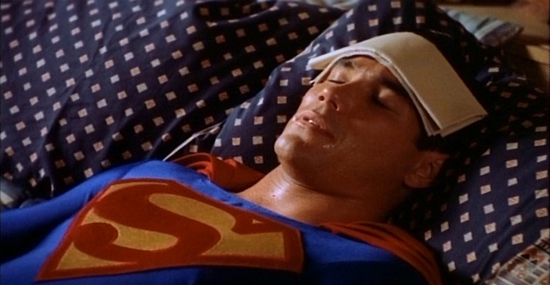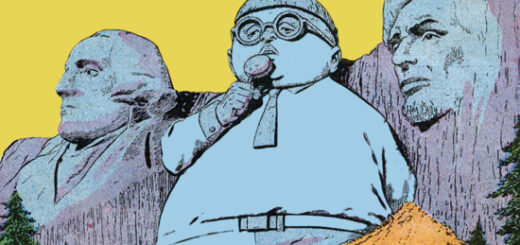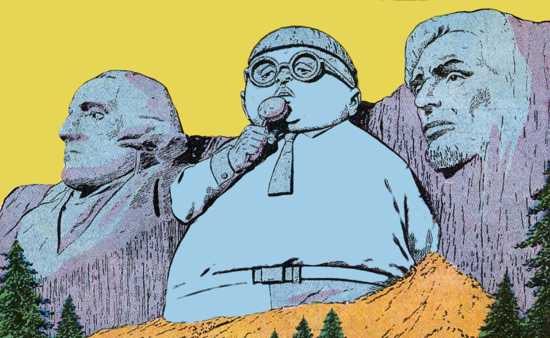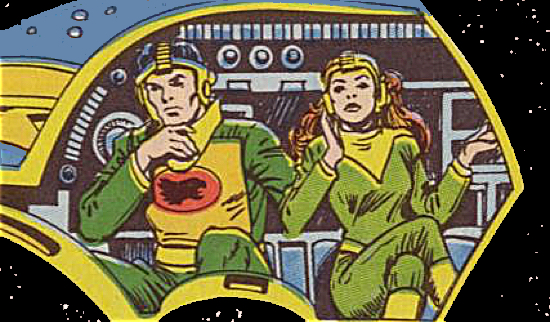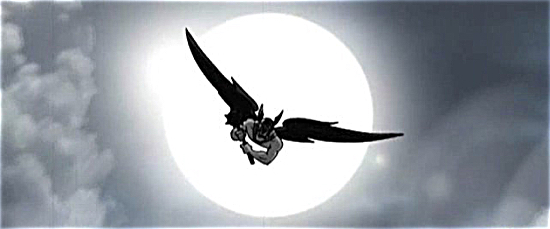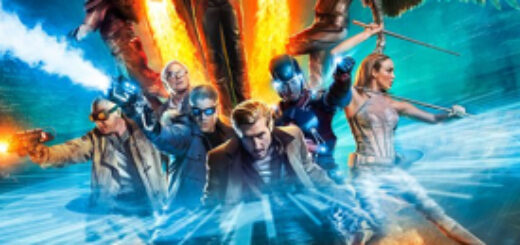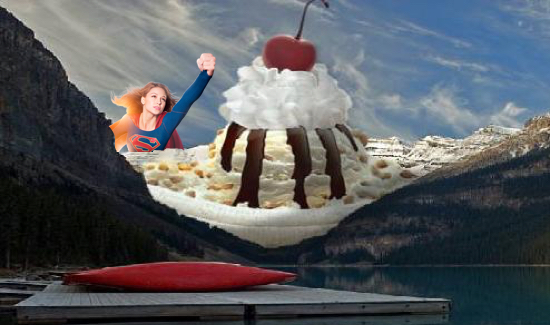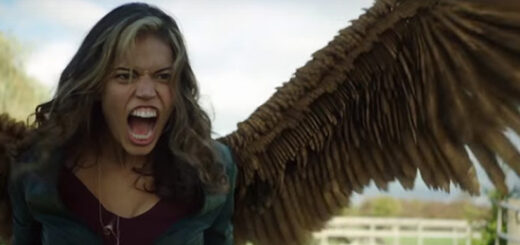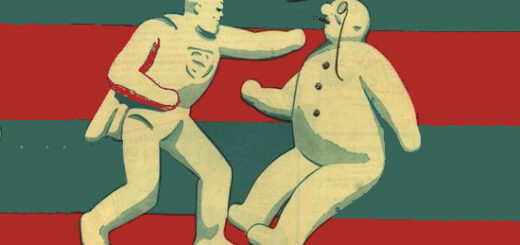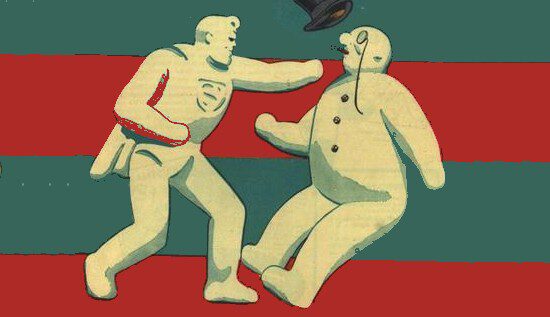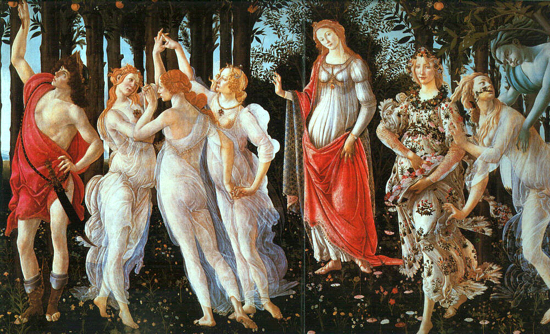Author: Dennis O'Neil
Dennis O’Neil: Deadpool and the Fat Fury
Deadpool? Who the heck is Deadpool? What the heck is a Deadpool?
That’s Deadpool? Looks like he’s wearing a costume that Spider-Man gave to the Salvation Army. Superhero, huh? With his own movie. It made how much? A hundred and thirty-five million dollars opening weekend? American money?
Yeah, I didn’t see Deadpool coming either. Oh sure, I caught some of the television commercials, but nothing on the screen made me want to plunk down the price of admission. I thought that maybe I’d watch it on cable, maybe some night after Marifran’s crashed. Or maybe we’d watch it together. Some time. Maybe.
Deadpool is not exactly a household name, like Superman or Spider-Man. Despite a connection with the über-popular X-Men, I doubt that Deadpool has penetrated the public consciousness – or at least he hadn’t, before all those TV ads.
Now? Bet the mortgage money that a sequel is already heading our way.
Savants-to-come may extract meaning – or Meaning – from the Deadpoolian success. I won’t even try. Instead, I’ll content myself with observing that, obviously, the Great Superhero Surge has not waned. And if the showbiz folk can extract a Deadpool from the yellowing pages of ageing funnybooks and transform him into profit, mightn’t there be other forgotten/obscure/abandoned characters waiting for similar transformation?
Here’s a thought: why not take these almost-anonymous characters half way back to their birthplaces – those yellowing pages – and reinvent them as animated cartoons? Not the kind of paperdollish creations that used to inhabit the Saturday morniing wasteland. No, give them the same prime time treatment that was once given to The Flintstones and is currently accorded The Simpsons and The Family Guy. And while, yes, I’m proposing that these new shows feature superheroes, I wrote nothing about human superheroes. With a nod to Ralph Bakshi’s version of Mighty Mouse, let’s resurrect funny animals and, as is done with the Simpsons and Family Guy, give them not-so-funny themes.
Hoppy The Marvel Bunny, anyone?
Another idea? Sure. Four words: Herbie The Fat Fury. And who might he be? Herbie – last name Popnecker – was a tubby, lollypop loving kid who had secret superpowers. These he used to fight evil, which is, after all, what superheroes do, even if they’re not terribly imposing superheroes. Herbie lived on the newsstands, in various titles published by the American Comics Group, from 1958 to 1964. Then, poof. Gone!
I think Herbie has possibilities. He could work as an animation property – again, let us remember Family Guy – or in live action. It might be difficult to find the right actor to play him, but hey! that’s why those folks out on the west coast get the big bucks. The only other snag I can foresee is the “fat fury” sobriquet. Some citizens might find it offensive. Well, okay, drop it if that seems prudent. Not much will be lost if you do.
And admit it: aren’t you just a wee bit weary of muscled people in tight costumes? Like Deadpool?
Dennis O’Neil: Absorbascon, Omcromicon, and Me
Gentlefolk, the question I would put before the august company today is: If I had known about the Absorbascon would the Omcromicon have ever come to be and I would chose to elaborate on this inquiry by seeking your opinion as to whether the Omcromicon did, in fact, ever exist.
We may be tip-toeing into metaphyscs here, but I give you my word that we will not venture far.
Let’s begin my backing up a week. In our previous meeting I dissertated on a device used by Hawkman, a well-respected comic book character who also is currently appearing on television. I was not exactly heedless because I did preface my remarks by admitting that “I’m on shaky ground here because I’m not sure that I’m spelling “Omcromicon correctly” and that I knew of “…the Hawks’ favored weapons, antique harmbringers like maces and such,” but a hasty search of the web yielded no mention of this Omcromicon.
That’s because there was none. The Omcromicon was unintentionally created by me as I attended to writing last week’s column. Our esteemed friend Mr. Howard Margolin posts: “Denny, the device you’re referring to was called the Absorbascon.”
Much obliged, Howard.
Absorbascon/omcromicon…Absorbascon/omcromicon…The words aren’t exactly doppelgangers, are they? We’re not dealing with a misplaced letter or two. So out of what orifice did I pull “Omcromicon?” I don’t know.
I am prepared to state the obvious: If I hadn’t been trying to write about the “Absorbascon,” I would not have coined “Omcromicon” So is one of these things real and the other unreal? Are both real? Neither?
Well, consider: neither is a tangible object that can be handled or dropped on the floor just after the warranty expires. But we’re giving them names and how can you name something that isn’t?
Perhaps we can solve this conundrum by borrowing a rhetorical tactic from St. Anselm. Let us refer the gadgets in question as The Most Perfect Omcromicon and The Most Perfect Absorbascon. So something that exists is more perfect than something that doesn’t and thus simple logic reveals that the most perfect iterations of both devices most exist or they wouldn’t be the most perfect. Of course, anything less than the most perfect has a problem, assuming that nonexistent things can have problems. (Could they have nonexistent problems and if so, how would we know about them? How would they know about them?)
I doubt that the writers who work on the television versions of Hawkman and Hawkwoman will incorporate any of this into their scripts. But that’s their problem.
Dennis O’Neil: Hawkman Is A Know-It-All!
We’re now into the run of television’s latest superhero saga, DC’s Legends of Tomorrow, and while we’ve been treated to both Hawkman and his mate, who are among the stars of the show, we haven’t yet seen Hawkman’s omcromicon. Do we breathe a sigh of relief or add another bitter complaint to the list?
Or do we scratch our heads and ask what the dickens an… wha’d I call it? – an omcromicon is?
Let’s do that. But first, a confession: I’m on shaky ground here because I’m not sure that I’m spelling “omcromicon” correctly and a very hasty pass through the web got me zilch. Plenty of stuff on Hawkman and Hawkgirl (a.k.a. Hawkwoman) – more than I expected – and a goodly number of mentions of what was once the Hawks’ favored weapons, antique harmbringers like maces and such. But omcromicon? Nada.
So I’m forced to depend on my memory and woe is us.
But here we go anyway. First, the obvious question: What’s an omcromicon? If memory serves – and that will be the day – the device under discussion here is a bit of technology that originated on the Hawks” home planet Thanagar. (Was there a Thanagarian Steve Jobs?) The omcromicon knows everything that everybody on our planet – Earth – knows, which makes it way handier than a Smartphone. (I’m presuming the gadget’s mindreading is limited to sentient beings and I don’t know where that would leave, say, dolphins.).
Nifty tool for a bewinged, offworld vigilante, no?
When I had a polite, but unintimate, acquaintance with the Hawks, I think I pretty much ignored it. The reasons? Okay, here we go into Comics Writing 101, but I will keep it short. The essence of this kind of fiction is struggle: two or more antagonists are after the same thing and the story is a narrative of how one of them defeats the other. If that struggle is too easily resolved, the story is pretty short and maybe not too interesting.
So now our question becomes: Does the omcromicon make the Hawks’ job too easy? Yes and no. It allows the storyteller to skip potentially boring blather about how the good guys got to the place where they could wallop the bad guys and let’s admit it, that’s what we want to see. But maybe the good guys would gain stature and interest if they had to do the legwork on stage. Let them solve the problems too easily and… why do we admire this hero again?
Give a winged avenger an omcromicon and you’ve given him or her something usually reserved for deities: omniscience. Or something darn close to it. You sure you want to do that?
I didn’t, on those rare occasions when the Hawks were a professional concern. But if I’m so smart, why am I not omniscent?
Dennis O’Neil: Legends of All Time!
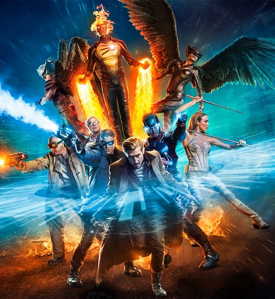 In this metaphor, time is a liquid and so we find ourselves doing the breaststroke, swimming back, back until we surface until we surface and…
In this metaphor, time is a liquid and so we find ourselves doing the breaststroke, swimming back, back until we surface until we surface and…
Where might we be? The air is crisp and clean, the ocean before us is deep blue, the whole world seems freshly minted… Oh, of course! We’re somewhere in the region that will come to be called Before the Common Era and we’re watching a group of alpha male-type gentlemen board a sailing ship. Ah, we have it now. The gents are Jason and his pals who will eventually be dubbed The Argonauts, which means that the ship is the Argo, built by a handy chap named Argus and protected by the goddess Hera. They’re preparing to voyage in quest of some golden fleece for reasons with which we need not bother. There we are – everything tied up in a neat package. Don’t you love it when that happens?
But while we were ogling the BCE version of celebrities, the metaphor morphed. What was liquid is now pages, some yellowed and curling, some clean and white and on those rapidly flipping pages… glimpses. There’s King Arthur and the roundtable bunch. (How do we know that this particular king is Arthur? Because we do, that’s how! Now hush.) And there’s Odysseus and his shipmates. And the four musketeers, who, for some reason, are hailed as the three musketeers. (Maybe the seventeenth century French dudes weren’t so good at counting?) And The Shadow with his helpers, and Doc Savage with his and – the pages are crisper and whiter – the Magnificent Seven and the Dirty Dozen and the Justice Society and the Justice League and the X-Men and DC’s Legends of Tomorrow…
Whoa. That last one – it isn’t on a page (yet), it’s on a video screen and I saw it a few nights ago: the latest entry into what’s beginning to seem like television’s Superhero Sweepstakes. What we have here are a number of B-team heroes who, with one exception that I’m aware of, first appeared in DC Comics. (There’s those darn pages again.) They’re united under the leadership of Rip Hunter to combat a giant economy sized threat to the planet and, probably, to ass kick sundry lesser malcontents. They’re not all happy to be part of the team, but that’s okay – we know they’ll be on the front lines when they’re needed. And maybe a bit of bickering will brighten the dialogue – exposition, don’t you know, can be such a bore.
The structure of stories such characters populate is simple and reliable: something threatens the common good, something so formidable that it takes a team to quell it, preferably a team with diverse capabilities to allow for varied action.
Did I mention their… I don’t know what to call it, but let’s settle for “vehicle.” It seems to be a combination airliner, houseboat, taxi cab and time machine, and it is nifty. (Are the toy companies lining up?)
The show itself? Can’t wait for next episode…Well, actually I can, but I will be watching it.
Dennis O’Neil: The Editor Pitch
Long time ago, as I was coming out of one of those anonymous buildings that house the motion picture business, a lovely young woman smiled as though she recognized me. I didn’t recognize her, or almost anyone else in southern Califormia, so I had to assume that she had mistaken me for someone else: Director? Naw. Producer? Naw. Guy who changes the light bulbs? Maybe. Or did she perhaps think I was a writer? Well, as a matter of fact, that’s what I was. I had just been talking to an editor and a studio executive and been informed that a check would soon be forthcoming.
What I’d been doing there, that summer’s day in Hollywood, was pitching a story. My words were my pitch. Next part of the process would be a return to New York and the execution of a script. Now, I’d never before sold fiction to television, but the procedure I was involved in was pretty familiar. It was the procedure I’d followed in selling dozens of scripts to DC, Marvel, and Charlton, which were all comic book companies. Yep, the rituals for the initial contacts in the two businesses, comics and teevee, were virtually identical. (The monetary rewards, alas, were not, but that’s a lament for another occasion.)
That was then. This isn’t. My recent professional contacts with the funnybook dodge, over the last decade-plus, have been spotty, but all of them, with a single possible exception have involved my delivering a written pitch to an editor before beginning a script. The talking part of the editor-writer encounter seems to have vanished. Let us pause while we gnash our teeth, rub ashes into our sackcloth tunics, tear our hair (and good luck doing this to me) and then shrug and get on with our day. So the rules have changed. So what hasn’t?
Exactly. Let’s not think about what ought to be, damnit, let’s think about what is. And then get on with it. If I were to voice a complaint, maybe in a coal bin at midnight, in the very softest of voices, it would concern efficiency and fairness to writers.
You, writer guy, has a conversation with editor guy. Questions are exchanges, Suggestions are offered. When the writer guy finally goes to the elevator, both parties know what’s expected, the exact nature of the task ahead. This doesn’t mean that there won’t be any confusion and/or misunderstanding, but maybe there will be less because there will be less opportunity for them. The writer won’t lose time doing rewrites – and for freelancers, no kidding, time is money – and the editor more likely to get the job on deadline and waste red ink doing corrections.
Is everybody happy?
Oh, you know better than that. This isn’t the Big Rock Candy Mountain. But the with the preliminary conversation – the verbal pitch – the job would be done, expertly and professionally, and you could watch this week’s episode of Supergirl with a clear conscience.
Well, almost clear. You know what you did.
Dennis O’Neil and the Mighty Marvel Method!
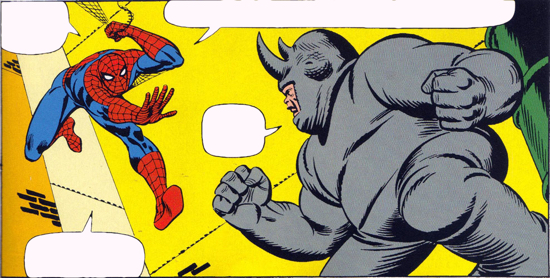
Back in the leafy days of yore, when I was freelancing as a journalist, short story writer and… what am I forgetting here? Pornographer? Something like that, something skeevy and disreputable – oh, of course. Comic book writer! A long time ago. Something north of a half century ago, in fact.
Anyway, in the mid-sixties, in Marvel Comics’ midtown Manhattan offices, I never heard the word “pitch,” nor was I ever asked to execute one. I was sometimes asked for a document that looked like a pitch, smelled like a pitch, tasted like a pitch… (Okay, maybe not that last. I don’t know. I never tried tasting one. Is it too late?) What these were, these pitchy rectangles of paper, were what we called plots. We’d bat one of these plots out on a (probably manual) typewriter, give it to an editor who gave it to a pencil artist who rendered the events mentioned in the plot into visuals – a whole lot of pictures…
Still with me? Okay. Deep breath and –
The pictures were returned to the writer who added words to the images and sacrificed a virgin at midnight and by golly, sooner or later all that effort resulted in a comic book. Millie the Model greets her fans! Kid Colt faces low-down ornery varmints!
But before the effort described above, the writer often (usually?) met with the editor and told the story he planned to write. And that meeting was the pitch. Which is?
The story. Spoken or written. Long or short. Plain or fancy.
It works pretty much the same way when one is writing for television, with maybe a tiny bit more emphasis on speaking rather than writing the story, but not much, and probably not always. (And when the writer is done talking, he may still have to write?)
What I just described came to be called “the Marvel method.” It was favored by Marvel’s Stan Lee and his artistic collaborators (especially Jack Kirby) because Stan was one busy dude and working this way saved him a minute here, an hour there.
So that’s the Marvel method and it isn’t much used these days. Current editorial practice seems to favor submitting a written story outline which contains all the pertinent story points, including the ending. And this is the pitch, millennial style. I don’t know that there’s any industry-wide standard format for these written pitches. Maybe individual editors have preferences and so it’s best to have a brief conversation with editor or editor’s representative before sitting at the keyboard and, you know, unleashing your genius upon the world.
I got away from what I first learned, the Marvel method, early in the game, partly for storytelling reasons and partly because when I got a job I wanted to get the damn thing done and out of the house and start on the next one before the guys in the midtown offices realize what a shopworn hack they’re dealing with.
More on this topic next week unless I come up with a really nifty idea between now and then.
Dennis O’Neil: The Times They Are…
So where are we and how’d we get here? An easy one to answer: we’re in the first week of 2016 – that’s SIXteen and don’t forget it when you write your next check. That’s the where and you can add a “when” to it. How’d we get here? Short answer: Continued breathing.
It’s not exactly tradition, but it is a widely practiced custom, to get in a reminiscent mood and look back at the twelve months just passed and comment on them. So here we go, peering into the rear view mirror, and…
Not a lot to see. For us, it was a quiet year, maybe the quietest in decades. Not much travel, not much shooting off my mouth in public. We stuck pretty close to Nyack, and we could do worse; nice town, Nyack, which is probably why we’re still here. The year before last – that’d be 2014 – was a monster, and so a placid stretch may have been in order. We are, after all, no spring chickens.
We lost some people because that’s what happens. We can’t change that, but we can remember and grieve,
The 2015 pop culture scene was pretty chipper. I did nothing as a participant, but I don’t mind sitting in the audience, especially since our local 21-plex has installed luxury seating. There were the usual spate of profitable movies crowned, as I write this, by the new Star Wars flick which has earned, thus far, a billion and a half dollars – that’s billion with a B – and I wonder which country SW’s creator, George Lucas, will decide to buy. (George: we had a good time in Argentina. Just a suggestion.)
On the tube, we had a classic yin-yang situation in the two female heroes who made their video debuts: Supergirl (= bright and cheerful = sunny yang.) Jessica Jones (= dark and grim = shadowy yin.) This is okay. It’s a big venue, with plenty of room for everyone.
The rest of the comics-derived heroes seem to be doing all right, and there’s another posse of them heading our way. I have to admit I never expected to see Hawkgirl on a tv screen but hey, Shiera, welcome to my living room and next time, bring your husband Carter along (unless in the television continuity you aren’t married, in which case Carter can come as your boyfriend. Always happy to greet boyfriends, especially if they have wings. And are you guys still from the planet Thanagar?)
By the way, I’m aware that she’s sometimes known as HawkWOMAN; either name is fine with me.
But what’s this? Somehow, we have crept out of 2015 and into 2016, morphed from reminescers to anticipators or even prophets, and that’s not us. Prophecy is a game for either con men or industrial strength optimists and this former spring chicken, being neither, will pass. Just let my brain soften a bit and maybe I’ll try it.
Dennis O’Neil: Time Out Time
Let it snow, let it snow, let it snow…
Please?
The weather oracles out here say that we can expect some sleet mixed with tonight’s rain and if that happens, if we’re blessed with the “wintry mix,” we should cherish it because we may not see it again, not this year. Mighty hot winter. I would like to snort a little fire and and decry global warming, but I’m no meteorologist (and neither is your friendly neighborhood politician) and so I can’t say with any authority that global warming is the sole cause of the soaring temperatures we here in the northeast have been liking/hating. But surely the climate change is in the mix somewhere.
After tonight’s sleet, if it comes to pass, nothing more of its kind is in the forecast.
A month or two ago, we bought me some heated gloves. They’re still in the wrapping.
Meanwhile… what we have here is a bardo week – an interval. All our favorite television superheroes are having winter rests and the new entries are yet to debut. There isn’t much I can add to the dialogue. We’ve been pleasantly surprised with Supergirl; the maid of might seems to have found a comfortable niche between fantasy/melodrama and old fashioned charm and every week she gives us a pleasant hour. The other costumed heroes are holding their own and that’s righteous enough for me.
And on the cinematic front, the big movie, the one we have been anticipating as though it is the Second Coming, set box office records from the get-go and is still setting them. Looks certain to earn more than a billion dollars very early in its run. Yay, I guess. I almost wish I didn’t know that and I could look at the movie, when I get around to it, as just a movie. As disclosed in last week’s column – and admit it, you were thrilled – I saw the first Star Wars before it opened, knowing almost nothing about it, and that’s a good way to experience entertainment. Though its true that for most of mankind’s involvement with storytelling, the listeners knew the ending of the story being told before they heard it, so novelty isn’t a requirement, just something that’s occasionally nice.
Next up, and at last: Superman v Batman. That probably won’t shake the Earth, but who knows?
Later: lots and lots and lots of superhero flicks, including Suicide Squad, based on comics by our own John Ostrander.
And about those comics: Yahoo’s news column recently listed all the comics that would be available in the coming week which, once again, demonstrates that our oft-maligned medium has gained full parity with all the other media. It’s also given me a venue in which to be damn lucky and that’s no bad thing to be grateful for as one year folds into another.
Dennis O’Neil: Descartes, Plato & The Matrix
Okay, wait a minute. You think you’re stacking gifts under the tree, but are you really? How do you know? Maybe you’re not the stacker but the stackee. Not the giver but the given. And about that tree: maybe it doesn’t really look like a tree. Or maybe it isn’t there. Maybe you’re not there.
Pause and take a breath.
Some savants tell us that there’s about a twenty percent chance that we are constructs, like avatars in computer games. Everything we are and believe to be real… isn’t. All just an illusion, and maybe a pretty shabby one at that.
The idea is older than you might guess. Way back in the Seventeenth Century, a brainy mathematician and philosopher named Rene Descartes suggested that a prankster of a demon kept you in a vat and not necessarily a big vat, either, because maybe you are no more than a brain. Maybe the only brain. Everything else is an illusion created by that snarky demon for reasons only snarky demons are privy to.
The idea was updated by the Wachowski siblings in their movie The Matrix. In that story, we humans are the captives of sentient machines who use our bodies as energy sources. We aren’t aware of our plight because the “reality” we experience is a humdinger of a simulation, courtesy of the machines. We languish in storage somewhere, enjoying or maybe loathing the show that we don’t know is a show.
The idea has sprouts elsewhere. Plato, the ancient Grecian savant, thought that everything we encounter is just a copy of an original that exists some non-terrestrial somewhere. Plato, in turn, inspired a group that became known as the neo-Platonists and some notions of a “heaven” are close to Plato’s hypothesis. (I could mention St. Augustine but I won’t because some of you, if you exist, might think I’m showing-off, and even if you don’t exist, I wouldn’t want you thinking ill of me.)
The notion that we’re make-believe creatures in a make-believe world has its attractions. It would explain why, for example, I have no memory of acts I must have committed hundreds of times and why, conversely, I have memory snatches of things that occurred when I was quite little. It also might relieve us of any responsibility for our actions. (Hey, it wasn’t me that broke your window, it was my programmer.) Of course, my lack of certain memories would have to be part of my programming. But wait. Could my lack of memories, and other anomalies, merely demonstrate a lack of competence in who or whatever is running the operation? Could our programmer be mentally challenged? Or a toddler paying with his equivalent of a pacifier? Maybe he’s named Junior and the adults have given him this stupid game to keep him quiet and you and I are part of the game.
Do we care? Is anything changed?
Well, ixpageoratsym. In Junior’s language that’s “happy holidays.” Go ahead – prove me wrong.

